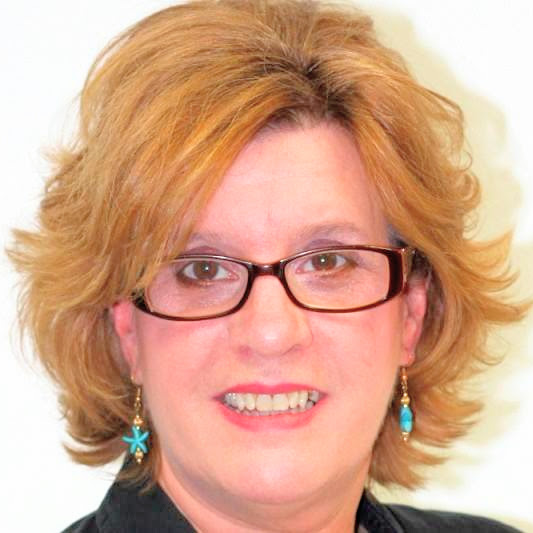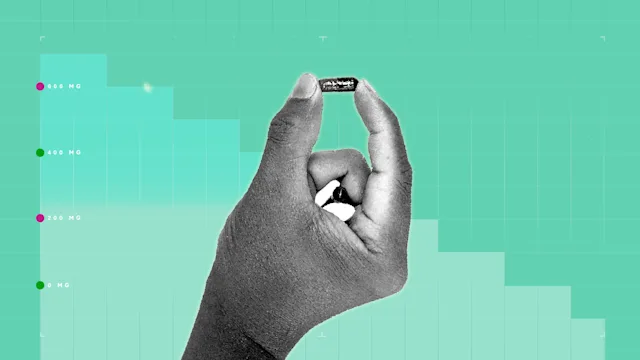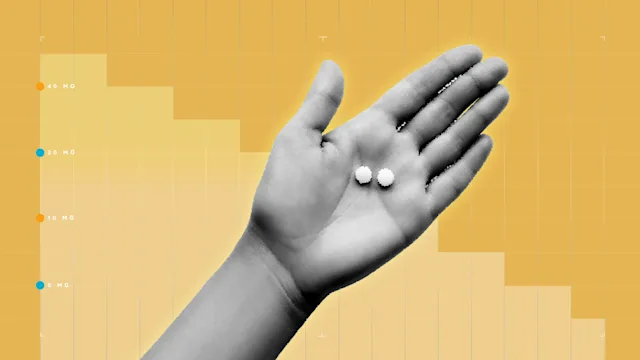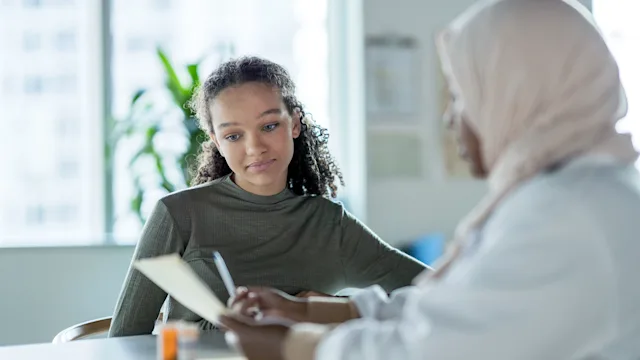Key takeaways:
Katelynn Kulp used to think ADHD (attention deficit-hyperactivity disorder) was a childhood condition.
When she was diagnosed as an adult, she realized she had coping skills that hid her symptoms.
Today, a combination of coping skills and ADHD medication have put her on the path to being more focused in her career and in other areas of life.
Despite working with patients every day who had ADHD (attention deficit-hyperactivity disorder), it was a surprise for Katelynn Kulp when she was diagnosed with it.
For years, Katelynn — a 32-year-old licensed practical nurse who lives in London, Ohio — was treated for anxiety and depression. It didn’t ever occur to her that any of her symptoms could stem from ADHD.
“My therapist asked me if I had ever considered an ADHD diagnosis,” she says. “And I said, ‘Um, no, because I’m not a 5-year-old hyperactive child.’”
Search and compare options
He recommended she reconsider and referred her to a specialist in adult ADHD diagnosis and testing. Like many adults, Katelynn didn’t seek help for ADHD because she didn’t know she might have it. Once she got the diagnosis, she says, everything made sense.
“All of my life, I had trouble focusing,” Katelynn says. “I would have something to do, and I would try my best, but then I’d always fall short. Then, I would get mad, fall short again, and get super anxious and super sad because I couldn’t meet those expectations.”


Not meeting those expectations triggered the anxiety and depression, she says, which, in turn, triggered coping mechanisms.
“I would find 20 ways to cope with that, and then I’d get super anxious that it wasn’t going to go my way,” she says.
Her coping skills hid signs of ADHD
But signs of adult ADHD were there all along, Katelynn says.
“I realized I have extreme sensory overload,” says Katelynn, a mother of four. “When I walk in the door, it’s always like ‘Mom! Mom! Mom!’ and it’s like 20 people all talking to me.”
- AdderallAmphetamine Salt Combo
- Adderall XRAmphetamine Salt Combo XR (Adderall XR)
- VyvanseLisdexamfetamine
Katelynn used to respond in anger.
“Looking back now, I realize that it’s not that I’m angry, but that there’s 20 things going on,” she says. “And they want me to focus on all 20, and I can’t focus on all 20. But at the same time, I can’t focus on what I need for me. So, I’m either going to hyper-focus on the one thing that doesn’t need it, or I’m going to under-focus on the one that needs it. I just can’t regulate my attention because it goes everywhere.”
As a psychiatric nurse, she says the diagnosis has given her new insight into her childhood. Even then, she says, there were signs of ADHD.
“When I was a kid, I always excelled in class because that was the one thing that I thought I could control,” she says. “You learn coping skills. I always thought they were normal.”
She would carefully color-code her notes to keep her attention or come up with other techniques to stay focused.
“I just kind of coped in random ways that I didn’t even realize,” she says.
Starting ADHD medication
When Katelynn’s therapist put her on the prescription stimulant Adderall to help manage her attention and mood, everything changed, she says. She and the therapist worked together to get the right dosage to make sure it was right for her.
“When I first went through nursing school, it was extremely hard,” she says. “I struggled a lot with being able to focus.”
After she started taking the ADHD medication, she felt a difference being able to absorb information.
“I thought: ‘Oh my god, is this what a normal brain is like?’” Katelynn says.
Life-changing diagnosis
Getting diagnosed and finding treatment for ADHD, Katelynn says, has changed her life and put her on a path to be more successful in her career.
“In a million different ways, I feel like I’m functional,” she says. “I didn’t realize that a lot of my depression and anxiety were because I couldn’t regulate my attention.”
She encourages others to be open-minded if a mental health specialist suggests getting tested for adult ADHD.
“Don't just discount it,” she says. “It’s life-changing once you actually realize the correct diagnosis and receive the proper treatment.”

Why trust our experts?

















